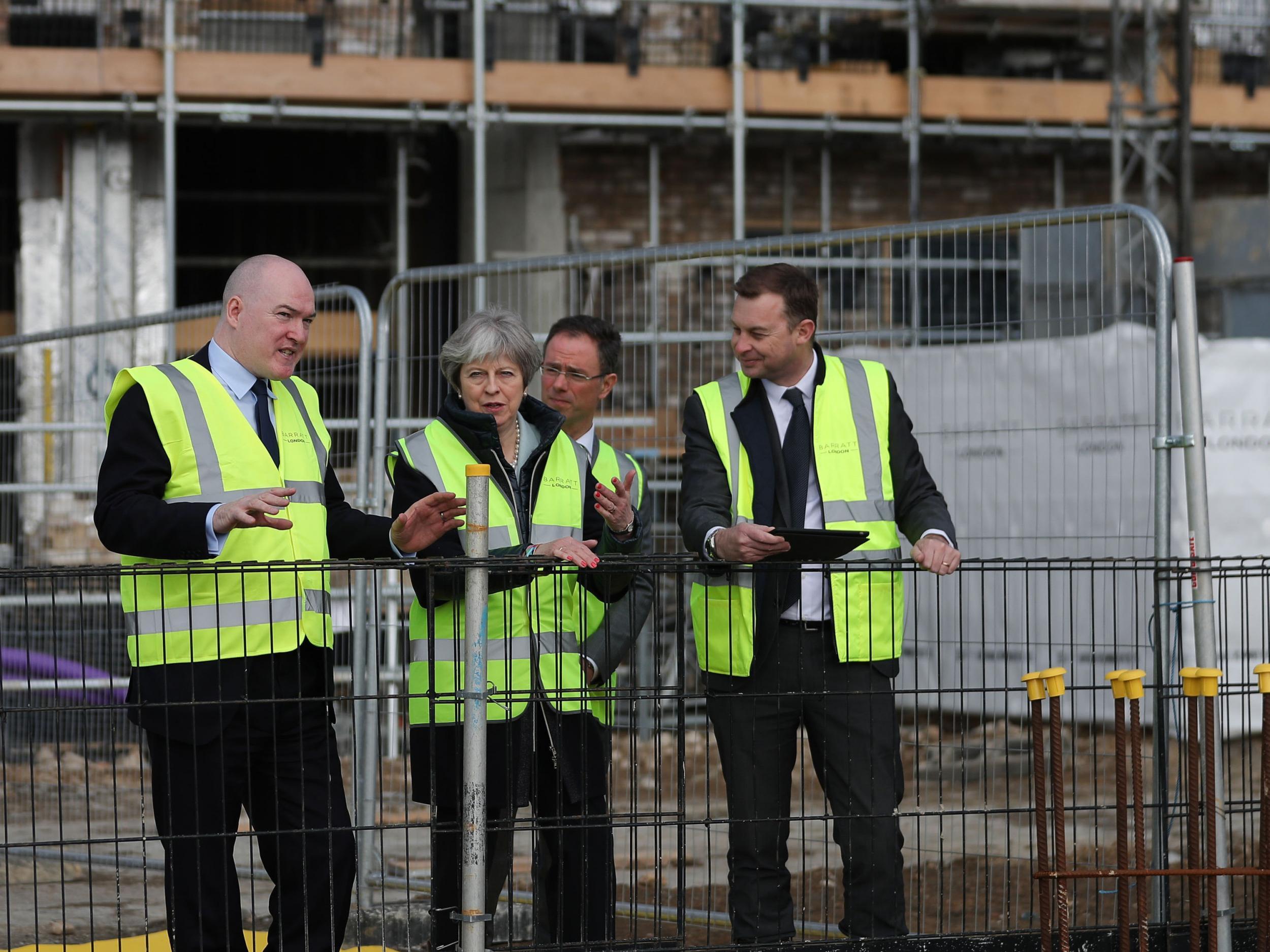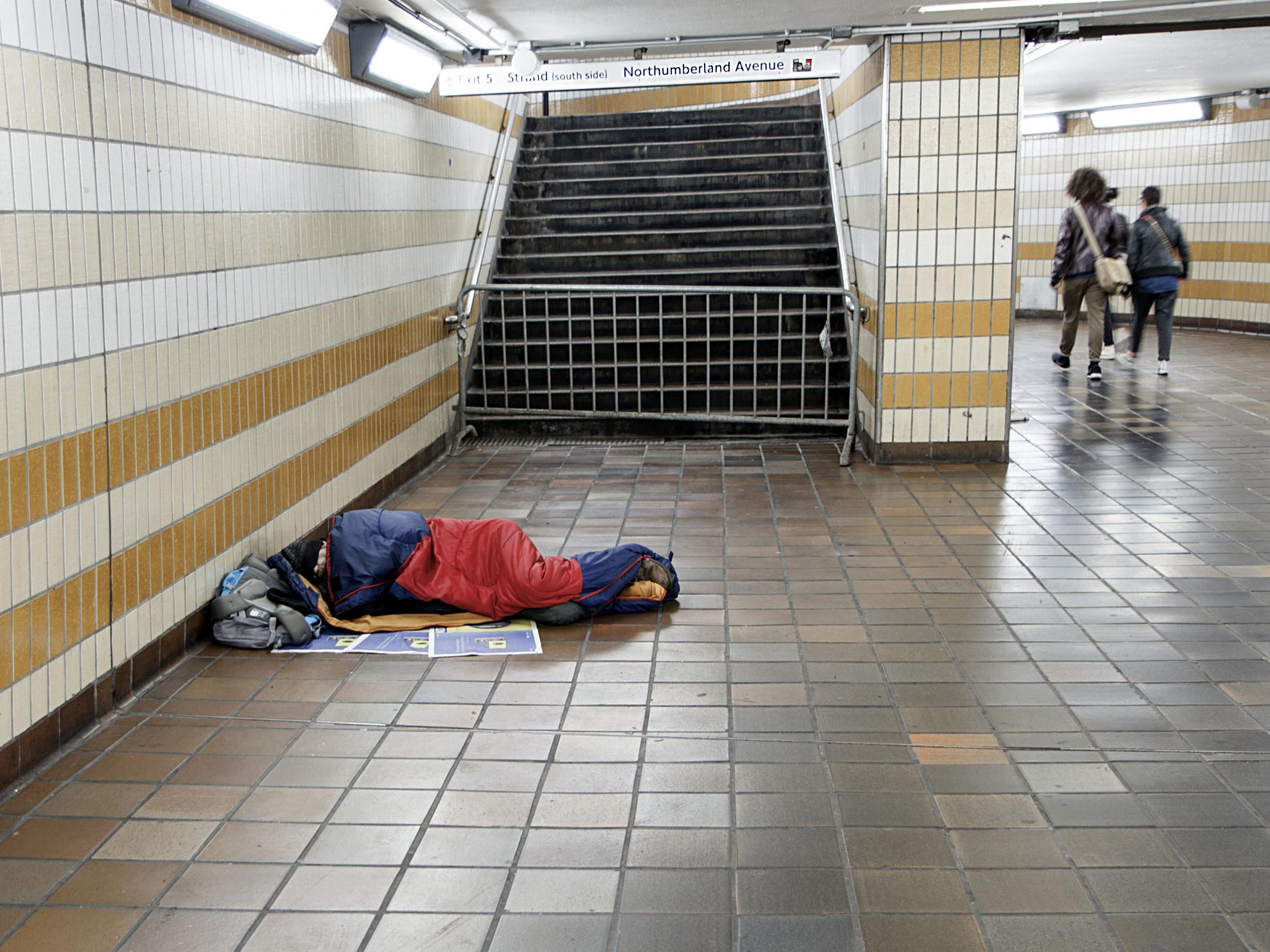Housing crisis can't be solved by tinkering with planning laws – build more social housing instead
Theresa May blames councils and developers for the housing crisis – but it’s a lack of leadership that’s the problem

Your support helps us to tell the story
From reproductive rights to climate change to Big Tech, The Independent is on the ground when the story is developing. Whether it's investigating the financials of Elon Musk's pro-Trump PAC or producing our latest documentary, 'The A Word', which shines a light on the American women fighting for reproductive rights, we know how important it is to parse out the facts from the messaging.
At such a critical moment in US history, we need reporters on the ground. Your donation allows us to keep sending journalists to speak to both sides of the story.
The Independent is trusted by Americans across the entire political spectrum. And unlike many other quality news outlets, we choose not to lock Americans out of our reporting and analysis with paywalls. We believe quality journalism should be available to everyone, paid for by those who can afford it.
Your support makes all the difference.Theresa May has set out to address citizens’ anger over the lack of affordable housing, blaming councils for failing to enforce planning rules and private developers for focusing on making a profit for shareholders.
Yet her suggestion to tinker with the National Planning Policy Framework (NPPF) will keep leaders talking, rather than building – it will not resolve the nation’s housing crises. And yes, the crises are plural, not singular, depending on where you live.
The government must now step in and take the lead on housing policy and socially-focused capital investment, to provide the homes that people so desperately need.
Fundamentally, the purpose of housing – whether owned or rented – is to provide shelter from the elements: a place from which to access school, work and health care and to find privacy from the public gaze. Housing should also give people a sense of being “at home” – a place to be their authentic selves, and realise their ambitions.
For these reasons, housing is too important to be led by the private market. When the purpose of housing is to provide a profit for shareholders, it creates perverse incentives to build expensive luxury homes for the wealthy to live or invest in, or to delay construction while waiting for land values to rise (a practice known as “land banking”, identified by the prime minister in her speech).
The other option is social housing: homes owned by local councils or housing associations, rented out at significantly less than the market rate. There needs to be a mixed housing economy, which prioritises the delivery of sustainable and properly affordable homes. But there are several steps that both government, and society at large, must take in order to get there.

For one thing, it’s vital to change the way we talk about housing. All too often, private individuals and organisations are encouraged by government to invest in bricks and mortar, for example through the “right to buy” policy. But if government gets involved – directly building property – it’s not seen as a capital investment to benefit citizens – the nation’s “shareholders” – but as a “burden” or a “debt”, in terms of public sector borrowing.
Government should invest in capital subsidies to build social housing, in the name of the public good. The Welsh government is abolishing the right to buy in Wales, and England needs to follow suit. The policy means homes are being built with public money, then heavily discounted and sold to private landlords, who gain the uplift in value on resale as the market values rise.
There are even examples of houses bought through right to buy being let on the private market, to tenants who pay rent using a housing benefit from the government. As part of my ongoing research, I have even heard from landlords who won’t let to tenants on benefits anymore, because their mortgage company considers it too much of a risk.
All the while, the nation’s stock of affordable social homes is fast being depleted, with about 4,000 being sold each year. Borrowing rules need to be loosened, to allow councils to build social housing at really affordable rates. A tighter link to earnings – not rising property and land values – would create really affordable housing, in relation to tenants’ income.
The recent cold spell has underlined the urgent need for a rapid response, to end the growing problem of rough sleeping and homelessness. The market is partly to blame for the unacceptable rise in homelessness, alongside the government’s failure to invest in building more council housing. The impact of universal credit and benefit caps mean people cannot afford private rents in some areas, and there is not sufficient social or affordable housing to plug the gap.

The government can prevent people from having to sleep on the street, sofa-surf or engage in other forms of hidden homelessness by properly investing in health, education and social care to help keep people secure in their homes. Research has found that homeless people have many complex needs, which often require specialist support.
Another symptom of the lack of affordable homes is that only a quarter of young people today can afford to buy a house – the rest have been priced out. Many are delaying their transition into adulthood by continuing to live in their parents’ home, or sharing with others out of financial necessity when they would rather be moving into a family home with the person they love.
Both of these big social issues could be tackled with an integrated social policy with housing at its heart, and with investment by the government in building social and affordable homes. But there is also a keen need for more infrastructure and support, to help develop functional and well-connected communities.
The government recently announced a £866m investment to fund local council infrastructure schemes, but still more continued and consistent investment is needed. May’s changes to the NPPF to “encourage” building firms to get on and build homes – in addition to the funding already announced – is one part of the puzzle. But there is so much more that can and should be done.
Jo Richardson is a professor of housing and social research at De Montfort University. This article was first published in The Conversation (theconversation.com)
Join our commenting forum
Join thought-provoking conversations, follow other Independent readers and see their replies
Comments